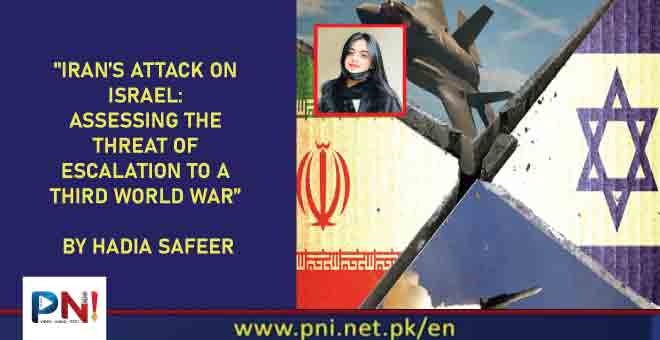Israel and Iran have been engaged in a covert conflict throughout the Middle East for many years, exchanging cyberattacks as well as land, sea, and air strikes. A recent round of strikes, primarily an airstrike against Israel last weekend by Iran, has made the conflict more visible and stoked concerns about a wider war. On Friday, however, a limited-scope Israeli counterattack on an Iranian air base looked to indicate an attempt to break free from the deadly loop and possibly bring the battle back into the shadows, according to analysts.
This is a brief account of the conflict’s history:
August 2019: A drone detonated a bomb close to a Hezbollah headquarters in Lebanon, an Israeli attack in Qaim, Iraq, killed a commander of an Iraqi force backed by Iran, and two militants with Iranian training were killed in Syria. Analysts argued that the strikes were intended to stop Iran and send a message to its proxies that Israel would not accept a fleet of smart missiles on its borders. At the time, Israel accused Iran of attempting to construct an overland arms supply corridor through Iraq and northern Syria to Lebanon.
January 2020: Israel responded to the US drone strike in Baghdad that killed Maj. Gen. Qassim Suleimani, the head of Iran’s Islamic Revolutionary Guards Corps’ foreign-facing branch, with delight.
About 100 American military personnel were injured when Iran retaliated by firing a flurry of missiles at two facilities in Iraq that housed American forces.
January 2021–2022: An attack off the coast of Oman in July 2021 claimed the lives of two crew members on an oil tanker operated by a shipping firm owned by Israelis, according to the company and three Israeli authorities. According to two authorities, Iranian drones appeared to have carried out the attack.
Although Iran did not either acknowledge or deny any involvement, a state-run television network presented the incident as a reaction to an Israeli strike in Syria.
Israel murdered Mohsen Fakhrizadeh, Iran’s leading nuclear scientist, in November 2021. Col. Sayad Khodayee, the head of the Revolutionary Guards, was assassinated in May 2022.
December 2023: Iranian-backed militias increased their own strikes after Israel started bombarding Gaza in retaliation for the Hamas-led offensive on October 7. Furthermore, Iran claimed towards the end of the previous year that Israel had killed Brig. Gen. Sayyed Razi Mousavi, a senior military official, in a missile strike in Syria.
General Mousavi, a top advisor to the Revolutionary Guards, was alleged to have assisted in supervising the transfer of weapons to Hezbollah and was a close friend of General Suleimani. As is customary, Israel remained silent when asked if it was responsible for General Mousavi’s passing.
January 2024: The first high-ranking Hamas official to be assassinated outside of the West Bank and Gaza in recent memory was Saleh al-Arouri, the leader of Hamas, and two commanders from the organization’s military wing were killed in an explosion in a Beirut, Lebanon, suburb. Officials from the US, Israel, and Hamas all claimed responsibility for the explosion, though they would not publicly acknowledge their involvement.
Following Mr. al-Arouri’s passing, Hezbollah, which is heavily backed by Iran, intensified its attacks against Israel. The Israeli military killed several of Hezbollah’s leaders in Lebanon as retaliation.
March2024: An Israeli drone strike hit a car in southern Lebanon, killing at least one person. March: At least one person was killed after an Israeli drone strike struck a car in southern Lebanon. The IDF of Israel declared that it had eliminated the deputy head of Hezbollah’s rocket and missile division. Hezbollah said that a man named Ali Abdulhassan Naim had passed away, but it gave no other information.
That same day, in what seemed to be one of the worst Israeli attacks on the nation in recent memory, airstrikes near Aleppo, in northern Syria, killed soldiers. The Syrian Observatory for Human Rights, a British-based organization that monitors Syria’s civil conflict, reports that the strikes claimed the lives of 36 Syrian soldiers, seven Hezbollah members, and a Syrian from a pro-Iran militia. The Israeli military declined to take accountability. However, Yoav Gallant, the nation’s military minister, stated on social media, “We will pursue Hezbollah every place it operates and we will expand the pressure and the pace of the attacks.”
April 2024: Three senior Iranian commanders and four officers were murdered in an attack on the Iranian Embassy building in Damascus on April 1. Iran accused Israel and threatened to retaliate violently. Two weeks later, Israel was hit by an unanticipated large-scale onslaught by Tehran consisting of over 300 drones and missiles, almost all of which were shot down by Israel and its allies. Israel had been threatening to retaliate for days before striking a military air facility close to the Iranian capital of Isfahan on Friday.
Why there’s no need to worry about a third World War because of the Israel-Iran dispute
Thursday marked the completion of the tit-for-tat strike that had pundits and international leaders wringing their hands, fearing that a Middle East-wide international War III would break out. Israel fired missiles at an Iranian military base. The bombs struck Iran’s soil with a thud, far from any populated regions, demonstrating that Israel and Iran are both capable of hitting one another where it hurts, whenever they choose.
This latest round of geopolitical landscape seems to have ended, but only because both nations exercised caution when using force, choosing to use their attacks to make a narrative point rather than a completely destructive one. The conflict started on April 1 after an Israeli strike on an Iranian consulate building in Syria, killing two of Tehran’s top generals.
Observing missiles being launched from one nation to another can be difficult. But if you go behind the guns and pyrotechnics, you’ll notice that both Iran and Israel have expressed the desire to avoid starting a full-scale conflict while simultaneously trying to preserve face with their respective populations by demonstrating strength in the face of an attack on their country.
The Israeli war cabinet has been debating possible ways to react for the past week. The customary war hawks calling for regime change returned to the fore when far-right National Security Minister Itamar Ben-Gvir declared that he wanted Israel to “go berserk” in reaction to Iran’s retaliation attack. Benny Gantz, a member of the war cabinet and head of the opposition, however, stated that Israel needs to fortify the “strategic alliance and the regional cooperation” that helped it withstand the Iranian onslaught, particularly the quick deployment of American and Jordanian air force aircraft.
The wish to defuse the situation suddenly sounds as though Iran is completely discounting Israel’s capabilities, especially since President Ebrahim Raisi of Iran said that “the tiniest act of aggression” would result in a retaliation only a few days ago. General Abdolrahim Mousavi, the commander of Iran’s army, refused to accept the strike within its boundaries, claiming that explosions heard close to Isfahan “were from our air defense firing at a suspicious object.” There are nuclear facilities in Isfahan. The event has not caused any damage. Mohammad Javad Zarif, the former foreign minister, called the exchange “fireworks.” And images of daily life in the neighborhoods closest to the target site were promptly released by Iran’s official news agency.
The message is obvious for the Iranian people, who live in a country where the media is closely regulated: since Israel poses no threat, we can feel secure.
As for the United States, Secretary of State Antony Blinken declared that Washington “has not been involved in any offensive operations,” despite the fact that diplomatic protocol and the realities of U.S.-Israel military relations required Israel to provide Defense Secretary Lloyd Austin with a few hours’ notice of the strike. This caution was especially needed after Israeli authorities admitted that their strike on Iran’s Embassy in Syria in early April was a “miscalculation” that caught the United States and allies in the area off guard.
To put it briefly, what would have been a conflagration was put out of its misery by the diplomacy and clear boundaries established by both nations’ allies. Both Israel and Iran succeeded in putting aside their egos and delaying their animosity—as well as millions of lives—for another day by employing some self-serving fiction.
Follow the PNI Facebook page for the latest news and updates.









